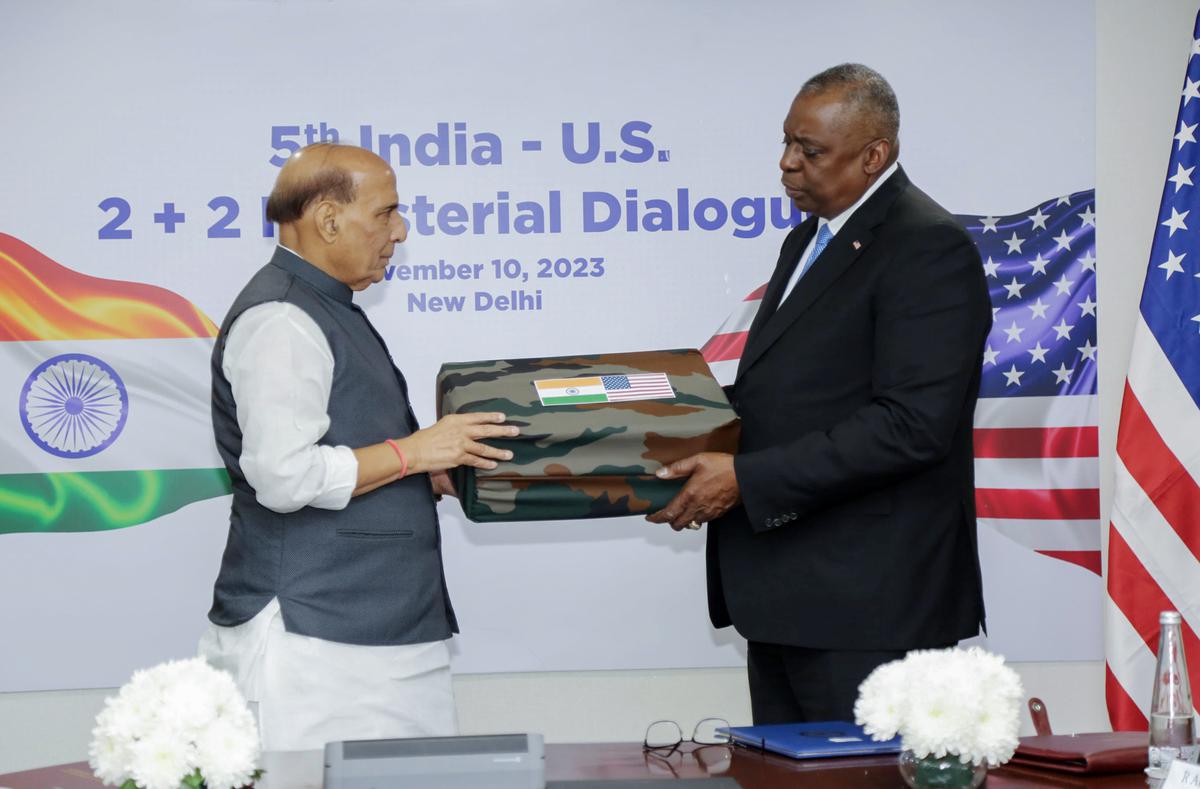India and the US are working on a “two-fold” strategy to counter China’s aggressive agenda in the Indo-Pacific, South China Sea (SCS) and other regions and geographies. One, New Delhi and Washington will fast-track the projects and other developmental works on which they are already working together in the countries which are in the Indo-Pacific region. Two, the Biden administration and the Narendra Modi government have decided to launch joint development initiatives in the “geopolitically and strategically important” countries such as the Philippines, Cambodia, Laos, Mongolia, Myanmar, Afghanistan and Vietnam.
“The sectors in which joint work has to be done are being identified, and a strategy for the same is being finalized. Talks between the US and India are already underway at different levels of governments. External Affairs Minister S Jaishankar and US Secretary of State Antony Blinken have recently briefly reviewed the development so far with the updates on the various such projects,” a source aware of the matter told The Sunday Guardian here in New Delhi. He added, “Jaishankar and Blinken agreed that a comprehensive discussion for finalizing the further strategy needs to be held as soon as possible for which a date to have a higher-level diplomatic meeting will be fixed.”
The US administration says “across much of the Indo-Pacific region, China is using military and economic coercion to bully its neighbours, advance unlawful maritime claims, threaten maritime shipping lanes, and destabilize territory along the periphery of People’s Republic of China (PRC). The US stands with its Southeast Asian allies and partners to champion a free and open Indo-Pacific.” “India also shares US’ views on Chinese bullying and aggressive activities in the Indo-Pacific and both countries want to expand their presence in the countries which are bearing the brunt of an aggressive China,” says a diplomat referring to what transpired so far between Jaishankar and Blinken.
India and the US have, therefore, decided to launch development projects in the Philippines which is facing Chinese aggression. According to sources, diplomatic officials of India and the US are already in talks to plan about how to execute the projects there. Other relevant agencies and establishments have also been taken into confidence, sources said. In fact, the first weeks of 2024 have seen a serious escalation of tension between China and the Philippines in their sovereignty dispute over the Second Thomas Shoal. There have been several run-ins between the two countries’ vessels shooting water cannons at Philippine ships. Naval officials from the countries bordering the Pacific, such as Japan, Russia and the US met in China’s eastern city of Nanjing to discuss the issue of heightened tensions in the South China Sea. But no concrete solutions came out. China continues to lay claim to almost the entire South China Sea which is a conduit for goods worth more than $3 trillion every year. The nations such as Brunei, Malaysia, Taiwan and Vietnam are also competing claims to the same region. But China continues to expand its military footprints to frighten the small countries. It is in this backdrop that India and the US last year decided to strengthen their strategic alliance by enhancing defence and security collaborations and expanding cooperation in the Indo-Pacific. This collaboration happened during the India-US 2+2 dialogue in New Delhi. The expansion of collaborations and expansion of strategic ties between New Delhi and Washington will now be materialized.
Now, India and the US want to expand existing partnerships with the tiny nations in the Indo-Pacific with the objective to ensure development of the countries and also to address the issues resulting from China’s growing military assertiveness in the region, sources said. The focus will be on the Philippines in whose maritime territorial regions China continues to pose a grave threat. India and the US will be working on expediting the existing joint projects which are already underway in other countries which are facing challenges from China. Australia, Bangladesh, Bhutan, Brunei, Cambodia and DPRK, Indonesia, Japan, Malaysia, Nepal, New Zealand, etc. are some of the countries in the Indo-Pacific where the US and India will be fast-tracking their initiatives in what will mark expansion of partnerships with these nations, sources said. The South China Sea, which has long been a focal point of global concern due to China’s belligerent posture in the region, will be on top priority, says an official.
India has already exposed how China keeps trying to engage Association of South East Asian Nations (ASEAN) member states in a protracted dialogue on Code of Conduct (CoC in SCS) while at the same time relentlessly pursuing its agenda of island reclamation thereby posing a challenge to regional stability. India and the US have already worked on education, energy, agriculture and health-related development projects in Africa and Southeast Asia in the past. They also have partnered for projects in Cambodia, Afghanistan, Laos, Mongolia, Myanmar and Vietnam. “Now the Biden administration is keen to accelerate the projects in these countries for which it is seeking cooperation from India,” officials told The Sunday Guardian. The Philippines is a key political and security ally of the US. It has recently increased its defence procurement from India as well. The Philippines has received support from the US on several energy projects under the “Energy Secure Philippines” program. India and the US will soon identify the areas where new initiatives could be launched by them, says a diplomat.

